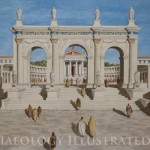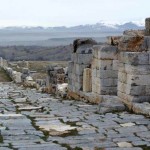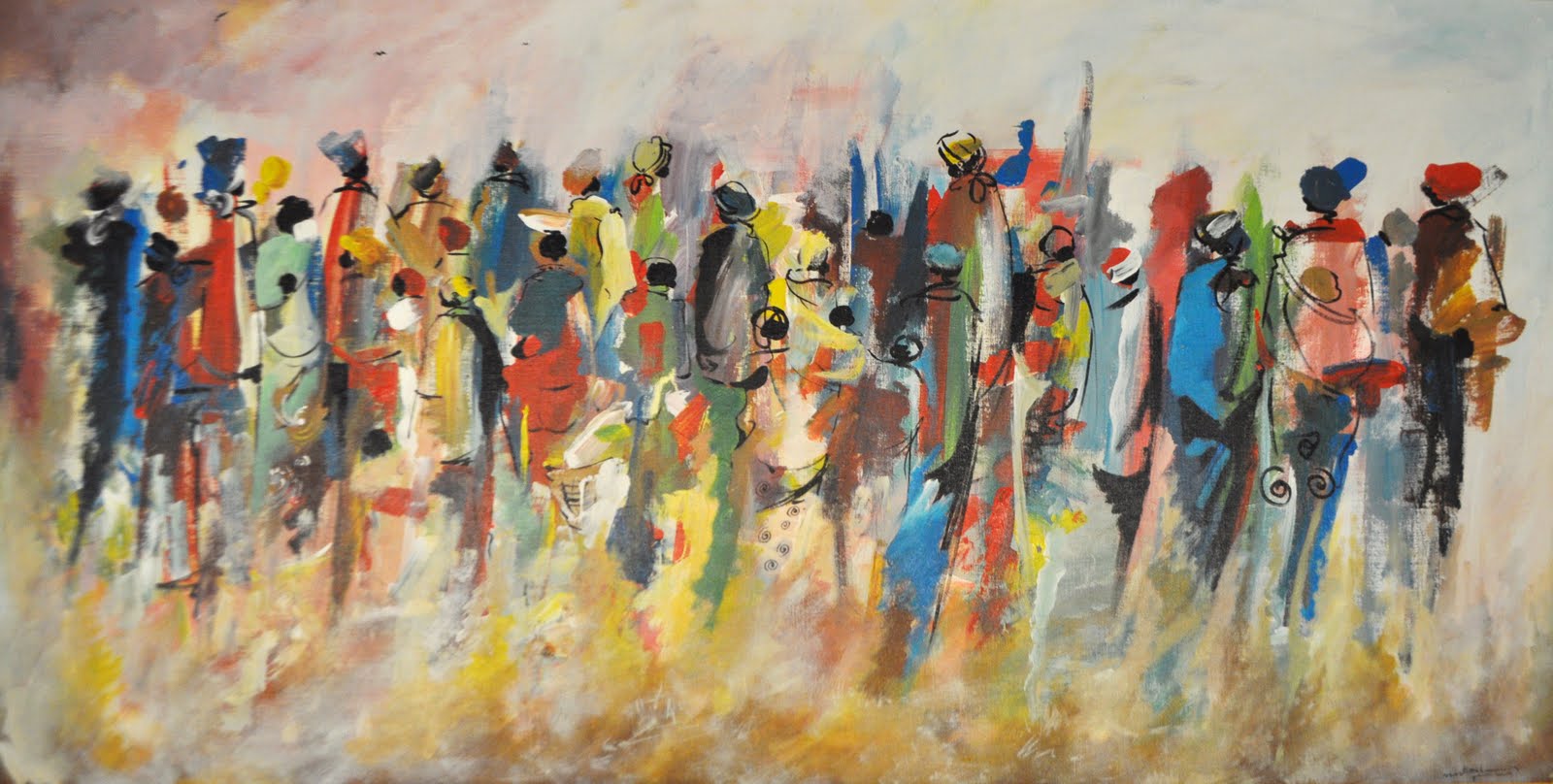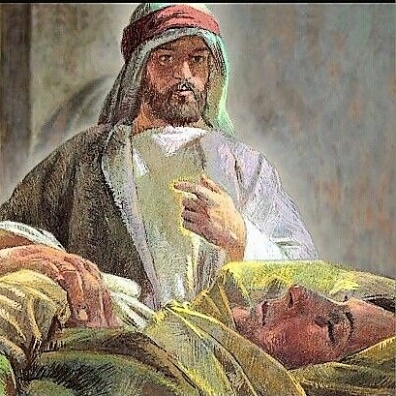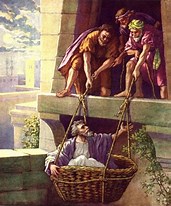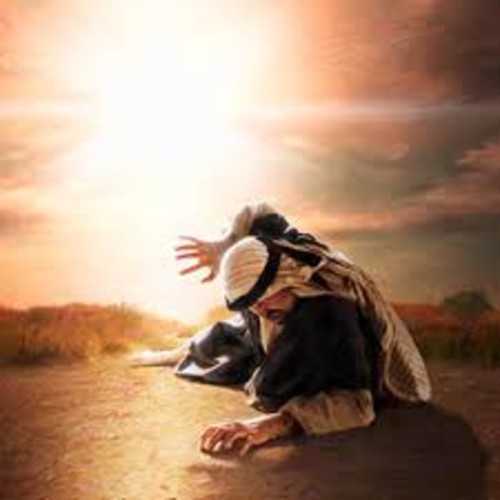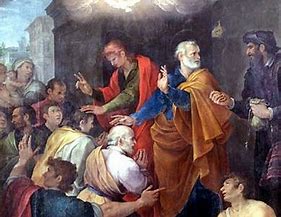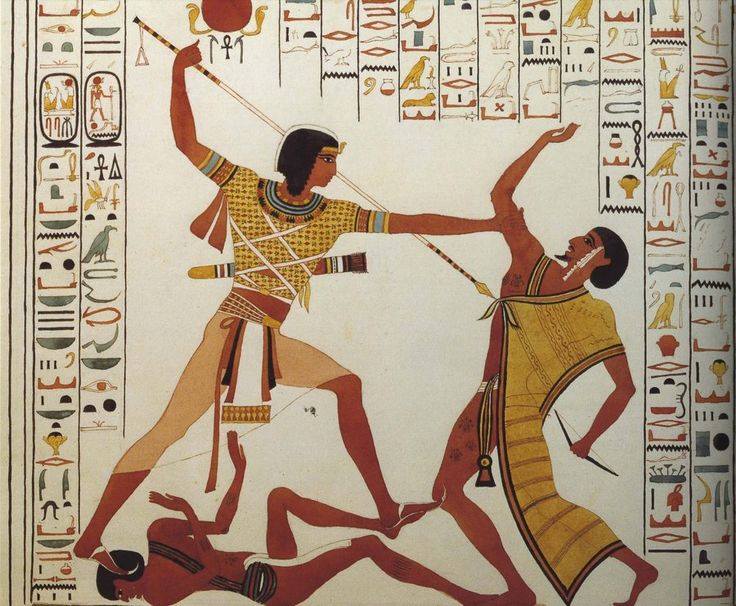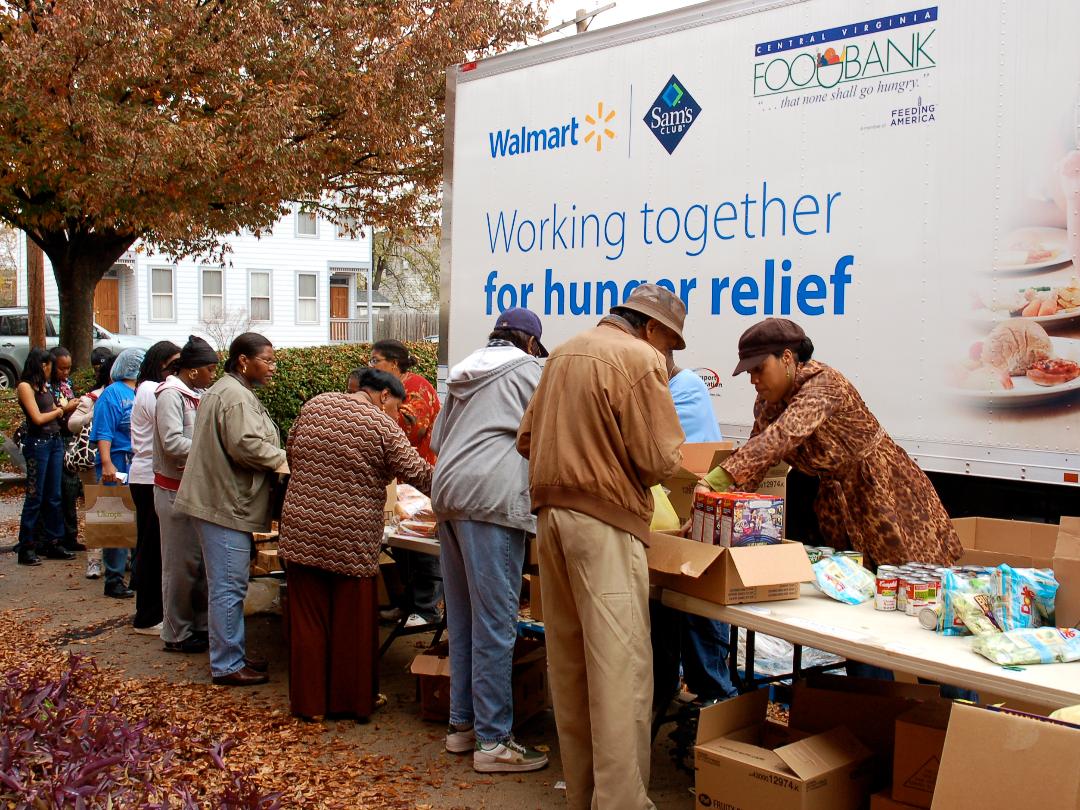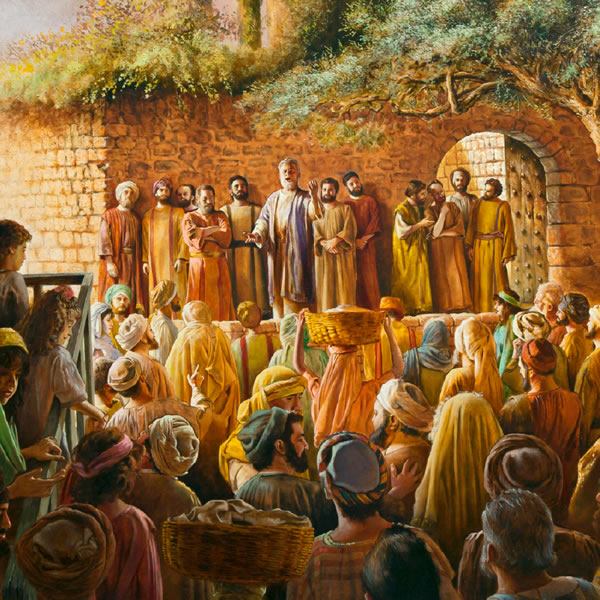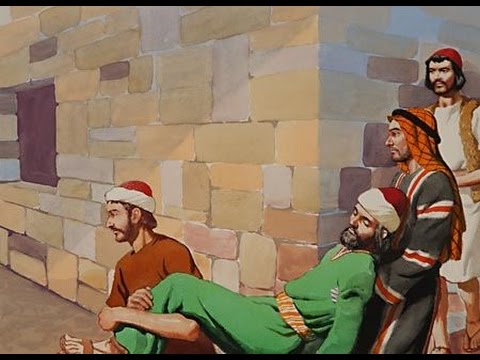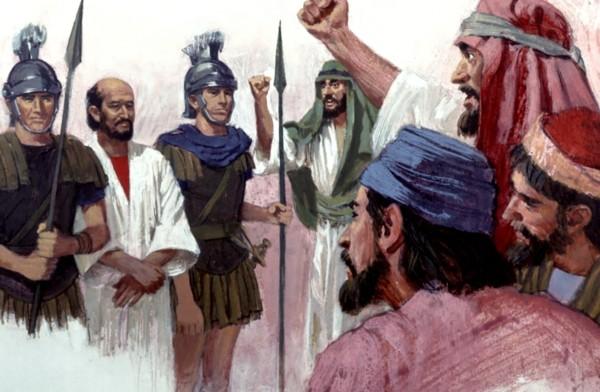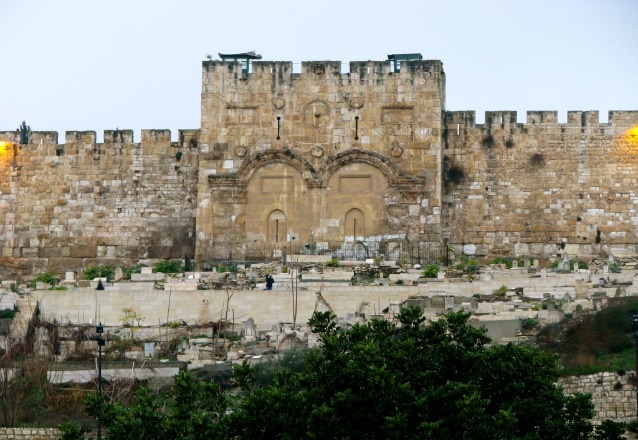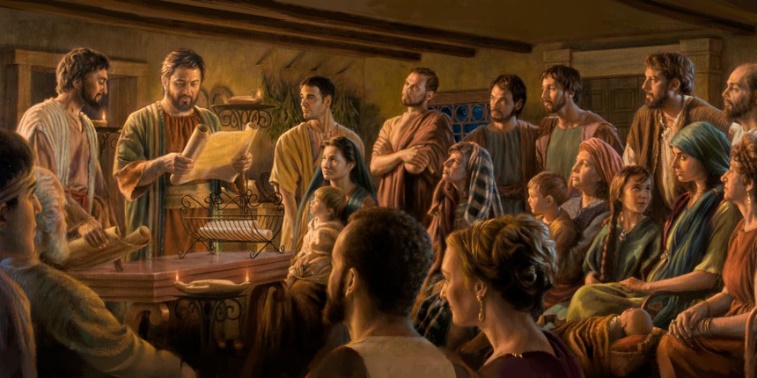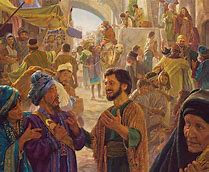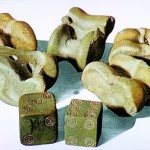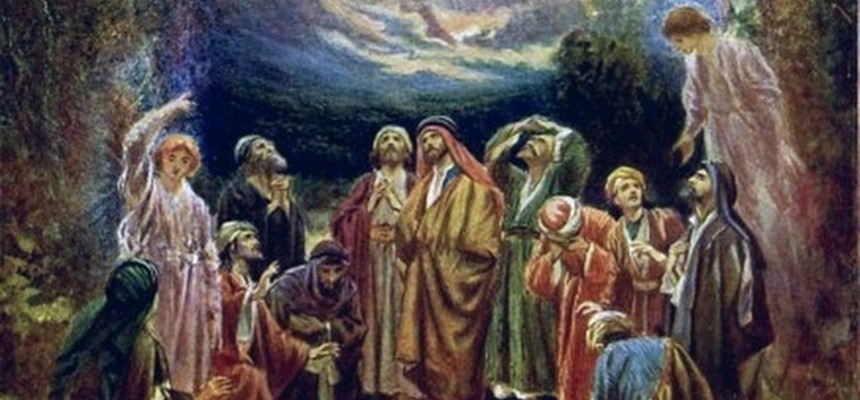“Verse by Verse”
Walking with the Early Church Through
the Book of Acts
During the past several years members and friends of St. Luke’s Lutheran Church in Derwood, have read and studied 13 chapters of the Bible thru internet posts. Readers report they found the practice an enjoyable and informative way to get to know Scripture. After a hiatus, readers have asked that the program continue. So, we begin again with the newly titled “Verse by Verse.”
The books are not necessarily read in the order they appear in the Bible. But within a book we read continually from chapter 1:1 through to the end. This differs from how we select readings during worship. Most Lutheran, Catholic and other Protestant churches select Sunday readings from a schedule known as the RCL (Revised Common Lectionary). It is designed so that within a 3-year period, major sections of the Bible are read, but not in a continuous manner. For example, one week the gospel might be from John 3, the next week from John 17. There are benefits in both methods.
The reading and commentary, written by Pastor Sarah Lewis, are posted on the 1. church website, stlukesderwood.org; 2. Facebook page, St. Luke’s Lutheran Church Derwood; or 3. sent by email, VerseXVerse@yahoo.com.
Acts #22
Dear friends,
These two pictures show Antioch: one in Roman times, when it was located in Syria, and the second today as part of modern Turkey.
Our reading today focuses on the church in Antioch and the work of Barnabas. The author describes Barnabas as “a good man, full of the Holy Spirit and strong in faith.” Here is more information about him to fill out his story.
Earlier in Acts 4:36-37 Barnabas, a Levite from Cyprus, sold a field and gave the money to the first group of believers in Jerusalem. Barnabas was obviously a trusted member because he was the one who introduced Saul/Paul to the apostles and other believers. For years he and Paul traveled as missionaries together, but they separated over a dispute about John Mark, a cousin of Barnabas.
Tradition says Barnabas founded the Cypriot Orthodox Church and was martyred in Cyprus.
Blessings on your reading,
Pastor Sarah
Acts 11:19-30
Meanwhile, the believers who had been scattered during the persecution after Stephen’s death traveled as far as Phoenicia, Cyprus, and Antioch of Syria. They preached the word of God, but only to Jews. However, some of the believers who went to Antioch from Cyprus and Cyrene began preaching to the Gentiles about the Lord Jesus. The power of the Lord was with them, and a large number of these Gentiles believed and turned to the Lord.
When the church at Jerusalem heard what had happened, they sent Barnabas to Antioch. When he arrived and saw this evidence of God’s blessing, he was filled with joy, and he encouraged the believers to stay true to the Lord. Barnabas was a good man, full of the Holy Spirit and strong in faith. And many people were brought to the Lord.
Then Barnabas went on to Tarsus to look for Saul. When he found him, he brought him back to Antioch. Both of them stayed there with the church for a full year, teaching large crowds of people. (It was at Antioch that the believers[b] were first called Christians.)
During this time some prophets traveled from Jerusalem to Antioch. One of them named Agabus stood up in one of the meetings and predicted by the Spirit that a great famine was coming upon the entire Roman world. (This was fulfilled during the reign of Claudius.) So the believers in Antioch decided to send relief to the brothers and sistersin Judea, everyone giving as much as they could. 30 This they did, entrusting their gifts to Barnabas and Saul to take to the elders of the church in Jerusalem.
Acts #21
Acts 11:1-18
Dear brothers and sisters,
What a downer it must have been for Peter to return home and not receive the welcome he expected! Peter was excited to return to Jerusalem and tell the others all that had occurred during his visits to Lydda, Sharon, Joppa and Caesarea. Instead he was met with criticism!
The believers in Jerusalem and the people Peter visited at first focused more on proper social interactions than they did beliefs. It is the Holy Spirit that intervened as Peter talked. Notice how the Spirit proceeds the change in belief.
Perhaps everyone remembers this, but v. 14 reads, “you and your entire household will be saved.” The head of the house spoke for the rest of the family as well as slaves and servants in matters of religion.
We could place a star beside this passage as it marks a turning point in the expansion of Christianity to the Gentiles, a mission that both Peter and Paul focused on during their ministries.
Blessings on your reading,
Pastor Sarah
* * * * * * * *
Acts 11:1-18 The Message translation
The news traveled fast and in no time the leaders and friends back in Jerusalem heard about it—heard that the non-Jewish “outsiders” were now “in.” When Peter got back to Jerusalem, some of his old associates, concerned about circumcision, called him on the carpet: “What do you think you’re doing rubbing shoulders with that crowd, eating what is prohibited and ruining our good name?”
So Peter, starting from the beginning, laid it out for them step-by-step: “Recently I was in the town of Joppa praying. I fell into a trance and saw a vision: Something like a huge blanket, lowered by ropes at its four corners, came down out of heaven and settled on the ground in front of me. Milling around on the blanket were farm animals, wild animals, reptiles, birds—you name it, it was there. Fascinated, I took it all in.
“Then I heard a voice: ‘Go to it, Peter—kill and eat.’ I said, ‘Oh, no, Master. I’ve never so much as tasted food that wasn’t kosher.’ The voice spoke again: ‘If God says it’s okay, it’s okay.’ This happened three times, and then the blanket was pulled back up into the sky.
“Just then three men showed up at the house where I was staying, sent from Caesarea to get me. The Spirit told me to go with them, no questions asked. So I went with them, I and six friends, to the man who had sent for me. He told us how he had seen an angel right in his own house, real as his next-door neighbor, saying, ‘Send to Joppa and get Simon, the one they call Peter. He’ll tell you something that will save your life—in fact, you and everyone you care for.’
“So I started in, talking. Before I’d spoken half a dozen sentences, the Holy Spirit fell on them just as he did on us the first time. I remembered Jesus’ words: ‘John baptized with water; you will be baptized with the Holy Spirit.’ So I ask you: If God gave the same exact gift to them as to us when we believed in the Master Jesus Christ, how could I object to God?”
Hearing it all laid out like that, they quieted down. And then, as it sank in, they started praising God. “It’s really happened! God has broken through to the other nations, opened them up to Life!”
Acts #20
Acts 10:1-49
Dear friends,
Today’s reading is lengthy; however, I am presenting Chapter 10 without breaks. I think a continuous reading of this chapter offers us a better understanding of the story as it teaches important new ideas.
In the gospels Jesus shows us through his actions that God has no favorites among his children. Jesus treated not just Jewish men with respect and love, but expanded the group about whom he cared to include women, children, the sick and disabled, and foreigners from Samaria to Rome. He offered new interpretations of Jewish law which expanded their meanings.
In Acts 10 and continuing into chapter 11, Peter also proclaimed new and startling teachings in profound, life changing words.
In this chapter, Peter received a vision of a sheet from heaven filled with every kind of animal, bird and fish. Peter was confused and at that point did not understand the vision he had been shown. But the next day Peter accepted an invitation to the home of a Roman soldier, and then understood what God was telling him. “It has become clear to me that God really does show no favoritism. No; in every race, people who fear him and do what is right are acceptable to him,” v 34-35
And as if to prove the truth of what Peter said, the Holy Spirit fell upon all who were listening to Peter. Not only did Gentiles receive the Holy Spirit, but the Spirit came to them before they were baptized!
The timing of the Gentiles receiving the gift of the Holy Spirit, and then being baptized is of great interest to me. I have at times offered to include individuals who have not yet been baptized to the feast at the Lord’s Table. As we eat the bread and drink the wine something lifechanging occurs. The grace we receive from God, the love from Jesus and the feeling of inclusion from the Holy Spirit can move a person to want to be baptized—to become a member of Christ’s body, the church, always.
Blessings on your reading and your ponderings,
Pastor Sarah
* * * * * *
10 In Caesarea there lived a Roman army officer named Cornelius, who was a captain of the Italian Regiment. He was a devout, God-fearing man, as was everyone in his household. He gave generously to the poor and prayed regularly to God. One afternoon about three o’clock, he had a vision in which he saw an angel of God coming toward him. “Cornelius!” the angel said.
Cornelius stared at him in terror. “What is it, sir?” he asked the angel.
And the angel replied, “Your prayers and gifts to the poor have been received by God as an offering! Now send some men to Joppa, and summon a man named Simon Peter. He is staying with Simon, a tanner who lives near the seashore.”
As soon as the angel was gone, Cornelius called two of his household servants and a devout soldier, one of his personal attendants. He told them what had happened and sent them off to Joppa.
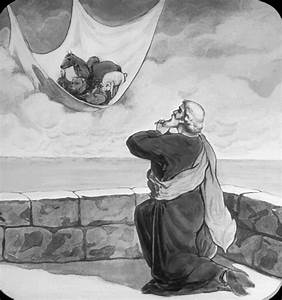 The next day as Cornelius’s messengers were nearing the town, Peter went up on the flat roof to pray. It was about noon, and he was hungry. But while a meal was being prepared, he fell into a trance. He saw the sky open, and something like a large sheet was let down by its four corners. In the sheet were all sorts of animals, reptiles, and birds. Then a voice said to him, “Get up, Peter; kill and eat them.”
The next day as Cornelius’s messengers were nearing the town, Peter went up on the flat roof to pray. It was about noon, and he was hungry. But while a meal was being prepared, he fell into a trance. He saw the sky open, and something like a large sheet was let down by its four corners. In the sheet were all sorts of animals, reptiles, and birds. Then a voice said to him, “Get up, Peter; kill and eat them.”
“No, Lord,” Peter declared. “I have never eaten anything that our Jewish laws have declared impure and unclean.”
But the voice spoke again: “Do not call something unclean if God has made it clean.” The same vision was repeated three times. Then the sheet was suddenly pulled up to heaven.
Peter was very perplexed. What could the vision mean? Just then the men sent by Cornelius found Simon’s house. Standing outside the gate, they asked if a man named Simon Peter was staying there.
Meanwhile, as Peter was puzzling over the vision, the Holy Spirit said to him, “Three men have come looking for you. Get up, go downstairs, and go with them without hesitation. Don’t worry, for I have sent them.”
So Peter went down and said, “I’m the man you are looking for. Why have you come?”
They said, “We were sent by Cornelius, a Roman officer. He is a devout and God-fearing man, well respected by all the Jews. A holy angel instructed him to summon you to his house so that he can hear your message.” So Peter invited the men to stay for the night. The next day he went with them, accompanied by some of the brothers from Joppa.
They arrived in Caesarea the following day. Cornelius was waiting for them and had called together his relatives and close friends. As Peter entered his home, Cornelius fell at his feet and worshiped him. But Peter pulled him up and said, “Stand up! I’m a human being just like you!” So they talked together and went inside, where many others were assembled.
Peter told them, “You know it is against our laws for a Jewish man to enter a Gentile home like this or to associate with you. But God has shown me that I should no longer think of anyone as impure or unclean. So, I came without objection as soon as I was sent for. Now tell me why you sent for me.”
Cornelius replied, “Four days ago I was praying in my house about this same time, three o’clock in the afternoon. Suddenly, a man in dazzling clothes was standing in front of me. He told me, ‘Cornelius, your prayer has been heard, and your gifts to the poor have been noticed by God! Now send messengers to Joppa, and summon a man named Simon Peter. He is staying in the home of Simon, a tanner who lives near the seashore.’ I sent for you at once, and it was good of you to come. Now we are all here, waiting before God to hear the message the Lord has given you.”
34 Then Peter replied, “I see very clearly that God shows no favoritism. In every nation he accepts those who fear him and do what is right. This is the message of Good News for the people of Israel—that there is peace with God through Jesus Christ, who is Lord of all. You know what happened throughout Judea, beginning in Galilee, after John began preaching his message of baptism. And you know that God anointed Jesus of Nazareth with the Holy Spirit and with power. Then Jesus went around doing good and healing all who were oppressed by the devil, for God was with him.
“And we apostles are witnesses of all he did throughout Judea and in Jerusalem. They put him to death by hanging him on a cross, but God raised him to life on the third day. Then God allowed him to appear, not to the general public, but to us whom God had chosen in advance to be his witnesses. We were those who ate and drank with him after he rose from the dead. And he ordered us to preach everywhere and to testify that Jesus is the one appointed by God to be the judge of all—the living and the dead. He is the one all the prophets testified about, saying that everyone who believes in him will have their sins forgiven through his name.”
Even as Peter was saying these things, the Holy Spirit fell upon all who were listening to the message. The Jewish believerswho came with Peter were amazed that the gift of the Holy Spirit had been poured out on the Gentiles, too. For they heard them speaking in other tonguesand praising God.
Then Peter asked,“Can anyone object to their being baptized, now that they have received the Holy Spirit just as we did?” So he gave orders for them to be baptized in the name of Jesus Christ. Afterward Cornelius asked him to stay with them for several days.
* * * * * *
Acts #19
Dear Friends,
If Dorcas were alive today, we’d probably identify her as a dress designer and manufacturer and admire her for her very public ministry to the poor. Tabitha/Dorcas must have been an important and well-loved person in her community since within hours of her death two men were sent to ask Peter to come and help.
In Luke’s gospel the writer often paired two stories, one featuring a man, the other a woman. First in today’s reading, Peter heals a paralyzed man and then raises Dorcas from the dead. Both stories are told to establish Peter as a person with powers like Jesus, thereby insuring the continuation of the church and its ability to convert more people.
The story of Dorcas is told in detail. She is the only woman in the book of Acts to be identified (in Greek) as a disciple. Yet even with the designation of disciple, her work is not identified as “ministry” but as “good works.”
All the women named in Acts, with two exceptions (Jesus’ mother and a maid), are wealthy and support the struggling churches. But the author of Acts is careful not to portray Christian women in positions of power. For political reasons, women could not be shown to be leaders. The church understood it would be dangerous to go against cultural norms in the Greco-Roman world by threatening men’s positions of power. Dorcas has inspired Christians through the centuries. On Jan. 27th the ELCA and other churches commemorate the ministries of Dorcas, Lydia and Phoebe as witnesses to the faith. And many congregations have women’s “circles” or groups whose mission is to provide clothing and other supplies to those in need.
Blessings on your reading and your ponderings,
Pastor Sarah
Acts 9:32-43
Meanwhile, Peter traveled from place to place to visit the believers, and in his travels he came to visit the believers in the town of Lydda. There he met a man named Aeneas, who had been paralyzed and bedridden for eight years. Peter said to him, “Aeneas, Jesus Christ heals you! Get up, and roll up your sleeping mat!” And he was healed instantly. Then the whole population of Lydda and Sharon saw Aeneas walking around, and they turned to the Lord.
There was a believer in Joppa named Tabitha (which in Greek is Dorcas). She was always doing kind things for others and helping the poor. About this time she became ill and died. Her body was washed for burial and laid in an upstairs room. But the believers had heard that Peter was nearby at Lydda, so they sent two men to beg him, “Please come as soon as possible!”
So Peter returned with them; and as soon as he arrived, they took him to the upstairs room. The room was filled with widows who were weeping and showing him the coats and other clothes Dorcas had made for them. But Peter asked them all to leave the room; then he knelt and prayed. Turning to the body he said, “Get up, Tabitha.” And she opened her eyes! When she saw Peter, she sat up! He gave her his hand and helped her up. Then he called in the widows and all the believers, and he presented her to them alive.
The news spread through the whole town, and many believed in the Lord. And Peter stayed a long time in Joppa, living with Simon, a tanner of hides.
Acts #18
Dear Friends,
Fear and anger seem to be appropriate responses when a person is confronted by someone who proclaims he/she has literally “seen the light,” and explains that the experience has totally reversed all his previous beliefs. Since Paul was a well know figure who worked unceasingly to get rid of people who believed Jesus was the Messiah, the Son of God, his change to total support for Jesus was alarming.
Jews in Damascus and Hellenists in Jerusalem took a page from Saul’s playbook and tried to kill him. (Hellenists: Greek speaking Jews who followed both Jewish religion and parts of Greek culture.) The apostles in Jerusalem initially distrusted Saul but were later convinced of his authenticity.
Saul/Paul spoke of his transformation in 1 Timothy 1:15-16.
“This is a true saying, and everyone should believe it: Christ Jesus came into the world to save sinners—and I was the worst of them all. But that is why God had mercy on me, so that Christ Jesus could use me as a prime example of his great patience with even the worst sinners. Then others will realize that they too, can believe in him and have eternal sin.”
Through his life Saul/Paul remained convinced that the struggles in his life were always used by God for others. And that belief gave him hope and comfort.
* * * * * * *
Acts 9:20-31
The Message Translation
Saul spent a few days getting acquainted with the Damascus disciples, but then went right to work, wasting no time, preaching in the meeting places that this Jesus was the Son of God. They were caught off guard by this and, not at all sure they could trust him, they kept saying, “Isn’t this the man who wreaked havoc in Jerusalem among the believers? And didn’t he come here to do the same thing—arrest us and drag us off to jail in Jerusalem for sentencing by the high priests?”
But their suspicions didn’t slow Saul down for even a minute. His momentum was up now, and he plowed straight into the opposition, disarming the Damascus Jews and trying to show them that this Jesus was the Messiah.
After this had gone on quite a long time, some Jews conspired to kill him, but Saul got wind of it. They were watching the city gates around the clock so they could kill him. Then one night the disciples engineered his escape by lowering him over the wall in a basket.
Back in Jerusalem he tried to join the disciples, but they were all afraid of him. They didn’t trust him one bit. Then Barnabas took him under his wing. He introduced him to the apostles and stood up for him, told them how Saul had seen and spoken to the Master on the Damascus Road and how in Damascus itself he had laid his life on the line with his bold preaching in Jesus’ name.
After that he was accepted as one of them, going in and out of Jerusalem with no questions asked, uninhibited as he preached in the Master’s name. But then he ran afoul of a group called Hellenists—he had been engaged in a running argument with them—who plotted his murder. When his friends learned of the plot, they got him out of town, took him to Caesarea, and then shipped him off to Tarsus.
Things calmed down after that and the church had smooth sailing for a while. All over the country—Judea, Samaria, Galilee—the church grew. They were permeated with a deep sense of reverence for God. The Holy Spirit was with them, strengthening them. They prospered wonderfully.
Acts #17
Acts 9:1-19
Dear Friends
Saul, the man perhaps in charge of the stoning of Stephen, worked hard to destroy the church just as it was getting started. He persecuted and jailed as many members as he could. Today we read the story of Jesus confronting him as he traveled on “the road to Damascus.” That phrase has become common to us.
road to Da·mas·cus
noun — 1. used in reference to an important moment of insight, typically one that leads to a dramatic transformation of attitude or belief: “this might be a wake-up call for the Prime Minister—his road to Damascus” Oxford Dictionaries
Many of us may have had “road to Damascus moments,” (not referring to our friends who live in Damascus MD ). A near death experience of a dear friend or relative, or ourselves; a moment in nature when we are certain of the presence of God; listening to music, looking at a work of art, reading the Bible; prayer for us or by us;—each one and more can be a time when we are certain of the presence of God and are transformed. Of course, not everyone has an experience this dramatic. Many of us have had a transformation that came slowly over time. And of course this is an equally valid way to come to believe in Jesus Christ.
I want to share lyrics to a song by Rich Mullens:
“Road to Damascus”
“On the road to Damascus
I was hung in the ropes of success
When You stripped away the mask of life
They had placed upon the face of death
And I wanna thank You Lord
More than all of my words can say
(I give my life)
And I give my life to sing Your praise. Refrain
And all those fortunes I hoarded
They were the well from which my poverty sprang
Oh they led me to no greater glory
And they left me with no less shame
refrain
I say I wanna give You glory Lord and I do
But everything that I could ever find to offer comes from You
But if my darkness can praise Your light
You give me breath and I’ll give my life to sing Your praise
refrain
And I give my life to sing Your praise
(And beyond this I would not beg)
For anything except the grace
(To give my life to sing Your praise)
Blessings on your reading and your pondering,
Pastor Sarah
(Several of you responded to my earlier question about the format of Verse to Verse saying you liked the commentary before the Scripture so that’s what we’ll do. Remember your questions and insights are valuable. You can either respond just to me, or to all.)
Acts 9:1-19 NLT
Meanwhile, Saul was uttering threats with every breath and was eager to kill the Lord’s followers. So he went to the high priest. He requested letters addressed to the synagogues in Damascus, asking for their cooperation in the arrest of any followers of the Way he found there. He wanted to bring them—both men and women—back to Jerusalem in chains.
As he was approaching Damascus on this mission, a light from heaven suddenly shone down around him. He fell to the ground and heard a voice saying to him, “Saul! Saul! Why are you persecuting me?”
“Who are you, lord?” Saul asked.
And the voice replied, “I am Jesus, the one you are persecuting! Now get up and go into the city, and you will be told what you must do.”
The men with Saul stood speechless, for they heard the sound of someone’s voice but saw no one! Saul picked himself up off the ground, but when he opened his eyes, he was blind. So his companions led him by the hand to Damascus. He remained there blind for three days and did not eat or drink.
Now there was a believer in Damascus named Ananias. The Lord spoke to him in a vision, calling, “Ananias!”
“Yes, Lord!” he replied.
The Lord said, “Go over to Straight Street, to the house of Judas. When you get there, ask for a man from Tarsus named Saul. He is praying to me right now. I have shown him a vision of a man named Ananias coming in and laying hands on him so he can see again.”
“But Lord,” exclaimed Ananias, “I’ve heard many people talk about the terrible things this man has done to the believers in Jerusalem! And he is authorized by the leading priests to arrest everyone who calls upon your name.”
But the Lord said, “Go, for Saul is my chosen instrument to take my message to the Gentiles and to kings, as well as to the people of Israel. And I will show him how much he must suffer for my name’s sake.”
So Ananias went and found Saul. He laid his hands on him and said, “Brother Saul, the Lord Jesus, who appeared to you on the road, has sent me so that you might regain your sight and be filled with the Holy Spirit.” Instantly something like scales fell from Saul’s eyes, and he regained his sight. Then he got up and was baptized. Afterward he ate some food and regained his strength.
Dear Brothers and Sisters in Christ,
When Peter addressed the crowd on Pentecost, he gave this response to the questions asked by the crowd: “What should we do?” Peter answered, “God’s promise is for you, for your children, and for all who are far away . . . Philip went to Samaria to tell the Good news to those who were far away from Jerusalem.
This kind of response reminds me of a prayer of Father Mychal. The Father was chaplain to the NY City Fire Department and lost his life on 9-11 at the Twin Towers. It is one I pray also.
Lord, take me where you want me to go.
Let me meet who you want me to meet.
Tell me what you want me to say.
And keep me out of your way.
Philip obeys when he hears God calling him to the road leading to Gaza, and to interacting with a man from Ethiopia. (At that time anyone with dark skin living south of Egypt was called Ethiopian.) He is identified as a eunuch which means he had been castrated, and therefore was not allowed to be a Jew. Curious then that the Bible says he had gone to Jerusalem to worship in the temple.
One final note: in some Bibles verse #37 has been removed. We don’t know the reason. Perhaps it was a mistake made by a person copying the text. I have included the verse because it seems of great importance
“You can,” Philip answered, “if you believe with all your heart. And the eunuch replied, “I believe that Jesus Christ is the Son of God.”
Blessings on your reading and ponderings,
Pastor Sarah
“As for Philip, an angel of the Lord said to him, “Go south down the desert road that runs from Jerusalem to Gaza.” So, he started out, and he met the treasurer of Ethiopia, a eunuch of great authority under the Kandake, the queen of Ethiopia. The eunuch had gone to Jerusalem to worship, and he was now returning. Seated in his carriage, he was reading aloud from the book of the prophet Isaiah.
The Holy Spirit said to Philip, “Go over and walk along beside the carriage.”
Philip ran over and heard the man reading from the prophet Isaiah. Philip asked, “Do you understand what you are reading?”
The man replied, “How can I, unless someone instructs me?” And he urged Philip to come up into the carriage and sit with him.
The passage of Scripture he had been reading was this:
“He was led like a sheep to the slaughter.
And as a lamb is silent before the shearers,
he did not open his mouth.
He was humiliated and received no justice.
Who can speak of his descendants?
For his life was taken from the earth.” (Isaiah 53:7-8)
The eunuch asked Philip, “Tell me, was the prophet talking about himself or someone else?” So beginning with this same Scripture, Philip told him the Good News about Jesus.
As they rode along, they came to some water, and the eunuch said, “Look! There’s some water! Why can’t I be baptized?” “You can,” Philip answered, “if you believe with all your heart.” And the eunuch replied, “I believe that Jesus Christ is the Son of God.” He ordered the carriage to stop, and they went down into the water, and Philip baptized him.
When they came up out of the water, the Spirit of the Lord snatched Philip away. The eunuch never saw him again but went on his way rejoicing.
Meanwhile, Philip found himself farther north at the town of Azotus. He preached the good news there and in every town along the way until he came to Caesarea.”
Acts #15
Acts 8:1-25
Dear friends,
The book of Acts has 28 chapters, so we’re at the midway point. I have been placing my commentary at the end of the Bible reading, and wonder if you find that to be the most helpful location. It could also be placed before the reading, thereby giving you notes on what to watch for as you read. If you’d like, let me know which you find easier to use.
I use the New Living Translation as the primary source for these readings, but I always check other translations. Today there is a good example of the differences between translations. Acts 8:1 tells us Saul was at the stoning of Stephen. Here are the ways that information was delivered in 5 separate translations:
New Living Translation: “Saul was one of the witnesses, and he agreed completely with the killing of Stephen.”
Message: “Saul was right there, congratulating the killers.”
New Revised Standard Version: “And Saul approved of their killing him.”
The Voice: “Saul, this young man who seemed to be supervising the whole violent event, was pleased by Stephen’s death.”
New Life Version: “Saul thought it was all right that Stephen was killed.
New King James Version: “Now Saul was consenting to his death.”
Each translation offers a different slant to the basic information. “Saul thought it was alright,” is quite different from “Saul congratulated the killers.” And “Saul seemed to be supervising the whole violent event,” is far from “Saul was consenting to his death.”
Let’s look at another example. Acts 8:10 tells of a man named Simon who is local competition for Philip when he arrives in Samaria to preach the Gospel. The titles given to Simon aren’t too different from one translation to another.
NLT: “the Great One—the Power of God.”
Message: “the Great Wizard.”
NRSV: “This man is the power of God that is called Great.”
NLV: “A man by the name of Simon had done witchcraft there. . . The people said, “This man must be that great power of God.”
NKJV: “This man is the great power of God.”
Voice: The Samaritans thought, “This is a truly great man, full of the power of the God of Greatness.”
One more thing: the headings added to sections of some Bibles use the phrase, “Simon, the Sorcerer,” although I didn’t find that title used in the body of any text.
To check various translations of Scripture, use www.biblegateway.com.
If you are thinking, “I’ve never heard of this Simon,” it is likely because his story is not part of the RCL, so we never read it during Sunday worship. When events are not used in Sunday worship it is more difficult to find background information. I am left wondering why the people Philip baptized did not receive the Holy Spirit. Apparently at that time only the twelve apostles had the power to baptize with the name of the Holy Spirit.
Blessings on your reading and your pondering,
Pastor Sarah
Acts 8:1-25
The Message Translation
1 Saul was right there, congratulating the killers.
That set off a terrific persecution of the church in Jerusalem. The believers were all scattered throughout Judea and Samaria. All, that is, but the apostles. Good and brave men buried Stephen, giving him a solemn funeral—not many dry eyes that day!
And Saul just went wild, devastating the church, entering house after house after house, dragging men and women off to jail. Forced to leave home base, the followers of Jesus all became missionaries. Wherever they were scattered, they preached the Message about Jesus. Going down to a Samaritan city, Philip proclaimed the Message of the Messiah. When the people heard what he had to say and saw the miracles, the clear signs of God’s action, they hung on his every word. Many who could neither stand nor walk were healed that day. The evil spirits protested loudly as they were sent on their way. And what joy in the city!
Previous to Philip’s arrival, a certain Simon had practiced magic in the city, posing as a famous man and dazzling all the Samaritans with his wizardry. He had them all, from little children to old men, eating out of his hand. They all thought he had supernatural powers and called him “the Great Wizard.” He had been around a long time and everyone was more or less in awe of him.
But when Philip came to town announcing the news of God’s kingdom and proclaiming the name of Jesus Christ, they forgot Simon and were baptized, becoming believers right and left! Even Simon himself believed and was baptized. From that moment he was like Philip’s shadow, so fascinated with all the God-signs and miracles that he wouldn’t leave Philip’s side.
When the apostles in Jerusalem received the report that Samaria had accepted God’s Message, they sent Peter and John down to pray for them to receive the Holy Spirit. Up to this point they had only been baptized in the name of the Master Jesus; the Holy Spirit hadn’t yet fallen on them. Then the apostles laid their hands on them and they did receive the Holy Spirit.
When Simon saw that the apostles by merely laying on hands conferred the Spirit, he pulled out his money, excited, and said, “Sell me your secret! Show me how you did that! How much do you want? Name your price!”
Peter said, “To hell with your money! And you along with it. Why, that’s unthinkable—trying to buy God’s gift! You’ll never be part of what God is doing by striking bargains and offering bribes. Change your ways—and now! Ask the Master to forgive you for trying to use God to make money. I can see this is an old habit with you; you reek with money-lust.”
“Oh!” said Simon, “pray for me! Pray to the Master that nothing like that will ever happen to me!”
And with that, the apostles were on their way, continuing to witness and spread the Message of God’s salvation, preaching in every Samaritan town they passed through on their return to Jerusalem.
Acts 7:30-60
“Forty years later, in the desert near Mount Sinai, an angel appeared to Moses in the flame of a burning bush. When Moses saw it, he was amazed at the sight. As he went to take a closer look, the voice of the Lord called out to him, ‘I am the God of your ancestors—the God of Abraham, Isaac, and Jacob.’ Moses shook with terror and did not dare to look.
“Then the Lord said to him, ‘Take off your sandals, for you are standing on holy ground. I have certainly seen the oppression of my people in Egypt. I have heard their groans and have come down to rescue them. Now go, for I am sending you back to Egypt.’
“So God sent back the same man his people had previously rejected when they demanded, ‘Who made you a ruler and judge over us?’ Through the angel who appeared to him in the burning bush, God sent Moses to be their ruler and savior. And by means of many wonders and miraculous signs, he led them out of Egypt, through the Red Sea, and through the wilderness for forty years.
“Moses himself told the people of Israel, ‘God will raise up for you a Prophet like me from among your own people.’ Moses was with our ancestors, the assembly of God’s people in the wilderness, when the angel spoke to him at Mount Sinai. And there Moses received life-giving words to pass on to us.
“But our ancestors refused to listen to Moses. They rejected him and wanted to return to Egypt. They told Aaron, ‘Make us some gods who can lead us, for we don’t know what has become of this Moses, who brought us out of Egypt.’ So they made an idol shaped like a calf, and they sacrificed to it and celebrated over this thing they had made. Then God turned away from them and abandoned them to serve the stars of heaven as their gods! In the book of the prophets it is written,
‘Was it to me you were bringing sacrifices and offerings
during those forty years in the wilderness, Israel?
No, you carried your pagan gods—
the shrine of Molech,
the star of your god Rephan,
and the images you made to worship them.
So I will send you into exile
as far away as Babylon.’
“Our ancestors carried the Tabernacle with them through the wilderness. It was constructed according to the plan God had shown to Moses. Years later, when Joshua led our ancestors in battle against the nations that God drove out of this land, the Tabernacle was taken with them into their new territory. And it stayed there until the time of King David.
“David found favor with God and asked for the privilege of building a permanent Temple for the God of Jacob. But it was Solomon who actually built it. However, the Most High doesn’t live in temples made by human hands. As the prophet says,
‘Heaven is my throne,
and the earth is my footstool.
Could you build me a temple as good as that?’
asks the Lord.
‘Could you build me such a resting place?
Didn’t my hands make both heaven and earth?’
“You stubborn people! You are heathen at heart and deaf to the truth. Must you forever resist the Holy Spirit? That’s what your ancestors did, and so do you! Name one prophet your ancestors didn’t persecute! They even killed the ones who predicted the coming of the Righteous One—the Messiah whom you betrayed and murdered. You deliberately disobeyed God’s law, even though you received it from the hands of angels.”
The Jewish leaders were infuriated by Stephen’s accusation, and they shook their fists at him in rage. But Stephen, full of the Holy Spirit, gazed steadily into heaven and saw the glory of God, and he saw Jesus standing in the place of honor at God’s right hand. And he told them, “Look, I see the heavens opened and the Son of Man standing in the place of honor at God’s right hand!”
Then they put their hands over their ears and began shouting. They rushed at him and dragged him out of the city and began to stone him. His accusers took off their coats and laid them at the feet of a young man named Saul.
As they stoned him, Stephen prayed, “Lord Jesus, receive my spirit.” He fell to his knees, shouting, “Lord, don’t charge them with this sin!” And with that, he died.
Dear Friends,
It’s not just Stephen’s final jab, “You are heathen at heart,” that makes the council so angry they kill him. It is his entire speech that angered them, since most of it compared Moses and the disobedient Israelites, with Jesus and the Jews that didn’t believe him. He railed against the temple, alleging that it was built with human hands. That charge against the temple implies that building it was an idolatrous act.
The stoning of Stephen is obviously based on the crucifixion of Jesus. Stephen repeats two of the phrases that Jesus gave from the cross:
“Lord Jesus (Father) receive my spirit,” and
“Lord, do not hold this sin against them.”
Notice that the council does not order the death of Stephen. It is the crowd that takes over making his death more of a lynching than an execution.
Matt Skinner, professor at Luther Seminary offers this insight:
“The story of Stephen gives us much to consider, lest we forget the atrocities that are part of the Christian legacy–those inflicted upon people of faith, as well as those inflicted by them.”
Blessings on your reading and pondering,
Pastor Sarah
Acts # 13
Acts 7:1-29
Then the high priest asked Stephen, “Are these accusations true?”
This was Stephen’s reply: “Brothers and fathers, listen to me. Our glorious God appeared to our ancestor Abraham in Mesopotamia before he settled in Haran. God told him, ‘Leave your native land and your relatives, and come into the land that I will show you. So Abraham left the land of the Chaldeans and lived in Haran until his father died. Then God brought him here to the land where you now live.
“But God gave him no inheritance here, not even one square foot of land. God did promise, however, that eventually the whole land would belong to Abraham and his descendants—even though he had no children yet. God also told him that his descendants would live in a foreign land, where they would be oppressed as slaves for 400 years. ‘But I will punish the nation that enslaves them,’ God said, ‘and in the end they will come out and worship me here in this place.’
“God also gave Abraham the covenant of circumcision at that time. So, when Abraham became the father of Isaac, he circumcised him on the eighth day. And the practice was continued when Isaac became the father of Jacob, and when Jacob became the father of the twelve patriarchs of the Israelite nation.
“These patriarchs were jealous of their brother Joseph, and they sold him to be a slave in Egypt. But God was with him and rescued him from all his troubles. And God gave him favor before Pharaoh, king of Egypt. God also gave Joseph unusual wisdom, so that Pharaoh appointed him governor over all of Egypt and put him in charge of the palace.
“But a famine came upon Egypt and Canaan. There was great misery, and our ancestors ran out of food. Jacob heard that there was still grain in Egypt, so he sent his sons—our ancestors—to buy some. The second time they went, Joseph revealed his identity to his brothers, and they were introduced to Pharaoh. Then Joseph sent for his father, Jacob, and all his relatives to come to Egypt, seventy-five persons in all. So Jacob went to Egypt. He died there, as did our ancestors. Their bodies were taken to Shechem and buried in the tomb Abraham had bought for a certain price from Hamor’s sons in Shechem.
“As the time drew near when God would fulfill his promise to Abraham, the number of our people in Egypt greatly increased. But then a new king came to the throne of Egypt who knew nothing about Joseph. This king exploited our people and oppressed them, forcing parents to abandon their newborn babies so they would die.
“At that time Moses was born—a beautiful child in God’s eyes. His parents cared for him at home for three months. When they had to abandon him, Pharaoh’s daughter adopted him and raised him as her own son. Moses was taught all the wisdom of the Egyptians, and he was powerful in both speech and action.
“One day when Moses was forty years old, he decided to visit his relatives, the people of Israel. He saw an Egyptian mistreating an Israelite. So, Moses came to the man’s defense and avenged him, killing the Egyptian. Moses assumed his fellow Israelites would realize that God had sent him to rescue them, but they didn’t.
“The next day he visited them again and saw two men of Israel fighting. He tried to be a peacemaker. ‘Men,’ he said, ‘you are brothers. Why are you fighting each other?’
“But the man in the wrong pushed Moses aside. ‘Who made you a ruler and judge over us?’ he asked. ‘Are you going to kill me as you killed that Egyptian yesterday?’ When Moses heard that, he fled the country and lived as a foreigner in the land of Midian. There his two sons were born.
Dear Friends,
Our reading for day is long so I’ll keep my comments short.
Stephen was accused of speaking against the temple and the law. When asked if the charges are true, he did not answer the question. Instead, he gave a brief history of Israel, beginning with Abraham and continuing through Moses. I wonder if the author did this for readers who had not read the Hebrew Scriptures or did not have any background with which to judge Stephen.
Today’s reading ends when Moses is 40. When Stephen continues his speech in the next reading Moses will be 40 years older, and about to become the one who leads the Hebrew people out of Egypt
.
Blessings on your reading,
Pastor Sarah
Acts 6:1-15
As the believers rapidly multiplied, there were rumblings of discontent. The Greek-speaking believers complained about the Hebrew-speaking believers, saying that their widows were being discriminated against in the daily distribution of food.
So, the Twelve called a meeting of all the believers. They said, “We apostles should spend our time teaching the word of God, not running a food program. And so, brothers, select seven men who are well respected and are full of the Spirit and wisdom. We will give them this responsibility. Then we apostles can spend our time in prayer and teaching the word.”
Everyone liked this idea, and they chose the following: Stephen (a man full of faith and the Holy Spirit), Philip, Procorus, Nicanor, Timon, Parmenas, and Nicolas of Antioch (an earlier convert to the Jewish faith). These seven were presented to the apostles, who prayed for them as they laid their hands on them.
So, God’s message continued to spread. The number of believers greatly increased in Jerusalem, and many of the Jewish priests were converted, too.
Stephen, a man full of God’s grace and power, performed amazing miracles and signs among the people. But one day some men from the Synagogue of Freed Slaves, as it was called, started to debate with him. They were Jews from Cyrene, Alexandria, Cilicia, and the province of Asia. None of them could stand against the wisdom and the Spirit with which Stephen spoke.
So, they persuaded some men to lie about Stephen, saying, “We heard him blaspheme Moses, and even God.” This roused the people, the elders, and the teachers of religious law. So, they arrested Stephen and brought him before the high council.
The lying witnesses said, “This man is always speaking against the holy Temple and against the law of Moses. We have heard him say that this Jesus of Nazareth will destroy the Temple and change the customs Moses handed down to us.”
At this point everyone in the high council stared at Stephen, because his face became as bright as an angel’s.
Dear friends,
By chapter 6 the honeymoon is over as arguments begin to disrupt the community. Hellenists refers to Jewish Christians whose native language was Greek and who did not speak Aramaic. Hebrews were the Christian Jews who only spoke Aramaic. There were also undoubtedly differences in their customs and beliefs. The apostles resolved the problem by adding additional men to the decision-making team. I chose a modern photo for this reading because Christian generosity to the needy is still part of our ministry today. As is the ritual of the laying on of hands as a way of commissioning members for special missions within the church.
These claims of unfairness bring to mind one of the incidents involving Moses and what seemed like another of the never-ending complaints by the Israelites. When Moses became overwhelmed with duties, he finally delegated some of his responsibilities to others.
Another theme still being played out today is the smearing of the name of a person you oppose. Those who saw the growing power of the disciple Stephen began to make up lies about him and spread those lies through the Jewish community. Today we may use the internet, but the practice has been with us for centuries.
Blessings on your reading and your pondering,
Pastor Sarah
Acts #11
Acts 5:24-42
When the captain of the Temple guard and the leading priests heard this, they were perplexed, wondering where it would all end. Then someone arrived with startling news: “The men you put in jail are standing in the Temple, teaching the people!”
The captain went with his Temple guards and arrested the apostles, but without violence, for they were afraid the people would stone them. Then they brought the apostles before the high council, where the high priest confronted them. “We gave you strict orders never again to teach in this man’s name!” he said. “Instead, you have filled all Jerusalem with your teaching about him, and you want to make us responsible for his death!”
But Peter and the apostles replied, “We must obey God rather than any human authority. The God of our ancestors raised Jesus from the dead after you killed him by hanging him on a cross. Then God put him in the place of honor at his right hand as Prince and Savior. He did this so the people of Israel would repent of their sins and be forgiven. We are witnesses of these things and so is the Holy Spirit, who is given by God to those who obey him.”
When they heard this, the high council was furious and decided to kill them. But one member, a Pharisee named Gamaliel, who was an expert in religious law and respected by all the people, stood up and ordered that the men be sent outside the council chamber for a while. Then he said to his colleagues, “Men of Israel, take care what you are planning to do to these men! Some time ago there was that fellow Theudas, who pretended to be someone great. About 400 others joined him, but he was killed, and all his followers went their various ways. The whole movement came to nothing. After him, at the time of the census, there was Judas of Galilee. He got people to follow him, but he was killed, too, and all his followers were scattered.
“So my advice is, leave these men alone. Let them go. If they are planning and doing these things merely on their own, it will soon be overthrown. 39 But if it is from God, you will not be able to overthrow them. You may even find yourselves fighting against God!”
The others accepted his advice. They called in the apostles and had them flogged. Then they ordered them never again to speak in the name of Jesus, and they let them go.
The apostles left the high council rejoicing that God had counted them worthy to suffer disgrace for the name of Jesus. And every day, in the Temple and from house to house, they continued to teach and preach this message: “Jesus is the Messiah.”
Dear Friends,
This week I have been as perplexed as the religious leaders were in v.24. I am perplexed by the elections that gave more evidence of a deeply divided country. I am perplexed by continuing hate filled shootings of innocent people. I am perplexed by hate filled speech being used by our president. I am perplexed by the dangerous idea, held by some people, that there is no absolute truth.
In the Bible translation we are using (NLT), verse 1 reads, “they were perplexed, wondering where it will all end.” Other translations, including the NRSV, “wondering what might be going on.” They are the kinds of question we ask. The chief priests were perplexed because few people dared to go against their orders. Most people recognized the priests’ power and obeyed them. You can sense the fear among the priests at these acts of rebellion.
This is the second time in Acts that the disciples are arrested. The first time it was because their preaching annoyed the authorities; this time the cause was the authorities’ jealousy. The first time they escaped from prison, and this time they were flogged and released.
And, this is the second time Peter courageously speaks “truth to power.” He, and other believers, will not be silenced nor acquiesce to authorities who tell them to stop. To the apostles God’s call is always most important. “We must obey God rather than any human authority.” V. 29
Gamaliel, a council member who was a teacher and a Pharisee, recognized the entire council was perplexed, so he suggested a way out. Don’t do anything, he suggested, just wait it out. He pointed out that earlier would-be messiahs were briefly popular but soon faded from the scene. (The “pretenders” Gamaliel mentioned, Judas the Galilean and Theudas, were also mentioned in historical records by non-Biblical sources.) This reminds me of the warning Jesus gave his disciples, “Don’t let anyone mislead you, for many will come in my name, claiming, ‘I am the Messiah,’and saying, ‘The time has come!’ But don’t believe them.” Luke 21:8
Following the advice to do nothing but wait and see what happens, can be a dangerous choice. It might be tempting to do nothing and stay out of the way during a time of confusion and danger. Apparently, the council decided to step back and wait. How thankful we are that the apostles and early believers did not heed this advice! They actually “rejoiced that they were considered worthy to suffer dishonor for the sake of (Jesus) the name.” v. 41
Blessings on your readings and your ponderings,
Pastor Sarah
Acts 4:36—5:23
For instance, there was Joseph, the one the apostles nicknamed Barnabas (which means “Son of Encouragement”). He was from the tribe of Levi and came from the island of Cyprus. He sold a field he owned and brought the money to the apostles.
But there was a certain man named Ananias who, with his wife, Sapphira, sold some property. He brought part of the money to the apostles, claiming it was the full amount. With his wife’s consent, he kept the rest.
Then Peter said, “Ananias, why have you let Satan fill your heart? You lied to the Holy Spirit, and you kept some of the money for yourself. The property was yours to sell or not sell, as you wished. And after selling it, the money was also yours to give away. How could you do a thing like this? You weren’t lying to us but to God!”
As soon as Ananias heard these words, he fell to the floor and died. Everyone who heard about it was terrified. Then some young men got up, wrapped him in a sheet, and took him out and buried him.
About three hours later his wife came in, not knowing what had happened. Peter asked her, “Was this the price you and your husband received for your land?”
Yes,” she replied, “that was the price.”
And Peter said, “How could the two of you even think of conspiring to test the Spirit of the Lord like this? The young men who buried your husband are just outside the door, and they will carry you out, too.”
Instantly, she fell to the floor and died. When the young men came in and saw that she was dead, they carried her out and buried her beside her husband. 11 Great fear gripped the entire church and everyone else who heard what had happened.
The apostles were performing many miraculous signs and wonders among the people. And all the believers were meeting regularly at the Temple in the area known as Solomon’s Colonnade. But no one else dared to join them, even though all the people had high regard for them. Yet more and more people believed and were brought to the Lord—crowds of both men and women. As a result of the apostles’ work, sick people were brought out into the streets on beds and mats so that Peter’s shadow might fall across some of them as he went by. Crowds came from the villages around Jerusalem, bringing their sick and those possessed by evilspirits, and they were all healed.
The high priest and his officials, who were Sadducees, were filled with jealousy. They arrested the apostles and put them in the public jail. But an angel of the Lord came at night, opened the gates of the jail, and brought them out. Then he told them, “Go to the Temple and give the people this message of life!”
So at daybreak the apostles entered the Temple, as they were told, and immediately began teaching.
When the high priest and his officials arrived, they convened the high council—the full assembly of the elders of Israel. Then they sent for the apostles to be brought from the jail for trial. But when the Temple guards went to the jail, the men were gone. So they returned to the council and reported, “The jail was securely locked, with the guards standing outside, but when we opened the gates, no one was there!”
Dear Friends,
Well, that is one way to bring the stewardship totals up! Not sure anyone else ever used the fear method used on Ananias and Sapphira. Hope not! Although in more subtle ways than dying instantly, the church has at times frightened people who did not give enough with eternal life in hell.
I think this is the first time I’ve actually read that the religious leaders acted against the followers of Jesus because they were jealous. That is a likely reason. However, when attacking Jesus, they at least appeared to be more concerned about keeping their jobs and positions if they raised the anger of the Romans and about maintaining the purity of the Jewish law.
Later in Acts we’ll read another story about believers escaping from jail. In that story angels come to free Paul from jail.
Blessings on your reading and your pondering.
Pastor Sarah
Acts 4:23-36
As soon as they were freed, Peter and John returned to the other believers and told them what the leading priests and elders had said. When they heard the report, all the believers lifted their voices together in prayer to God: “O Sovereign Lord, Creator of heaven and earth, the sea, and everything in them— you spoke long ago by the Holy Spirit through our ancestor David, your servant, saying,
‘Why were the nations so angry?
Why did they waste their time with futile plans?
The kings of the earth prepared for battle;
the rulers gathered together
against the Lord
and against his Messiah.’ (Psalm 2:1-2)
“In fact, this has happened here in this very city! For Herod Antipas, Pontius Pilate the governor, the Gentiles, and the people of Israel were all united against Jesus, your holy servant, whom you anointed. But everything they did was determined beforehand according to your will. And now, O Lord, hear their threats, and give us, your servants, great boldness in preaching your word. Stretch out your hand with healing power; may miraculous signs and wonders be done through the name of your holy servant Jesus.”
After this prayer, the meeting place shook, and they were all filled with the Holy Spirit. Then they preached the word of God with boldness.
All the believers were united in heart and mind. And they felt that what they owned was not their own, so they shared everything they had. The apostles testified powerfully to the resurrection of the Lord Jesus, and God’s great blessing was upon them all. There were no needy people among them, because those who owned land or houses would sell them and bring the money to the apostles to give to those in need.
Dear friends,
Immediately after being released from jail, Peter and John disobeyed the orders of the religious council to “never speak or teach about Jesus again.” (v 18) They demonstrated they could not “stop telling about the wonderful things they had seen and heard.” (v20) This reminds me of Luke’s description of the people cheering for Jesus on Palm Sunday. The Pharisees ordered Jesus to tell the people to stop. He responded, “If the (people) kept quiet, the stones along the road would burst into cheers.” (9:40)
And note this time when Peter led a prayer where he talked about those who murdered Jesus, he included not just the Jews but also the Gentiles, Herod Antipas and Pontius Pilate.
After all the gathered believers received the Holy Spirit, (the building shook) (v 31) they are inspired to institute new standards for their community.
Blessings on your reading and pondering,
Pastor Sarah
Acts 3:17—4:22
“Peter continued addressing the crowd. “Friends, I realize that what you and your leaders did to Jesus was done in ignorance. But God was fulfilling what all the prophets had foretold about the Messiah—that he must suffer these things. 19Now repent of your sins and turn to God, so that your sins may be wiped away. 20Then times of refreshment will come from the presence of the Lord, and he will again send you Jesus, your appointed Messiah. For he must remain in heaven until the time for the final restoration of all things, as God promised long ago through his holy prophets. Moses said, ‘The Lord your God will raise up for you a Prophet like me from among your own people. Listen carefully to everything he tells you.’ Then Moses said, ‘Anyone who will not listen to that Prophet will be completely cut off from God’s people.’
“Starting with Samuel, every prophet spoke about what is happening today. You are the children of those prophets, and you are included in the covenant God promised to your ancestors. For God said to Abraham, ‘Through your descendants all the families on earth will be blessed.’ When God raised up his servant, Jesus, he sent him first to you people of Israel, to bless you by turning each of you back from your sinful ways.”
While Peter and John were speaking to the people, they were confronted by the priests, the captain of the Temple guard, and some of the Sadducees. These leaders were very disturbed that Peter and John were teaching the people that through Jesus there is a resurrection of the dead. They arrested them and, since it was already evening, put them in jail until morning. But many of the people who heard their message believed it, so the number of men who believed now totaled about 5,000.
The next day the council of all the rulers and elders and teachers of religious law met in Jerusalem. Annas the high priest was there, along with Caiaphas, John, Alexander, and other relatives of the high priest. They brought in the two disciples and demanded, “By what power, or in whose name, have you done this?”
Then Peter, filled with the Holy Spirit, said to them, “Rulers and elders of our people, are we being questioned today because we’ve done a good deed for a crippled man? Do you want to know how he was healed? Let me clearly state to all of you and to all the people of Israel that he was healed by the powerful name of Jesus Christ the Nazarene, the man you crucified but whom God raised from the dead. For Jesus is the one referred to in the Scriptures, where it says,
‘The stone that you builders rejected
has now become the cornerstone.’(Psalm 118:22)
There is salvation in no one else! God has given no other name under heaven by which we must be saved.”
The members of the council were amazed when they saw the boldness of Peter and John, for they could see that they were ordinary men with no special training in the Scriptures. They also recognized them as men who had been with Jesus.
But since they could see the man who had been healed standing right there among them, there was nothing the council could say. So, they ordered Peter and John out of the council chamber and conferred among themselves.”
What should we do with these men?” they asked each other. “We can’t deny that they have performed a miraculous sign, and everybody in Jerusalem knows about it. But to keep them from spreading their propaganda any further, we must warn them not to speak to anyone in Jesus’ name again.” So they called the apostles back in and commanded them never again to speak or teach in the name of Jesus.
But Peter and John replied, “Do you think God wants us to obey you rather than him? We cannot stop telling about everything we have seen and heard.”
The council then threatened them further, but they finally let them go because they didn’t know how to punish them without starting a riot. For everyone was praising God for this miraculous sign—the healing of a man who had been lame for more than forty years.
Dear Friends,
Less than 40 days before today’s reading, Peter had denied even knowing Jesus! But this day, when he was under arrest and brought before the high council, members of the council were amazed by his boldness! Can it be the same man? The change in Peter is due to his “being filled with the Holy Spirit” v. 8
Peter’s speech in the temple and before the council were very much like the proclamation he gave on Pentecost. He reminds people of prophecies and events from the Hebrew Scriptures (Old Testament); accuses them of killing Jesus and insists they must turn from sin and turn to God.
Not surprisingly the religious leaders wanted to shut him up and offered both John and Peter freedom in exchange for their silence. Peter responded:
“Do you think God wants us to obey you rather than him?”
That is a fundamental question for our lives too. Think about what kind of speech or actions can get you thrown in jail today. Last spring a group of religious activists were arrested for reading passages from the Bible that spoke of taking care of people who are poor. They spoke in a rotunda of a Senate office building.
Often when people debate what to do in a situation where the government seems to be unjust, someone quotes Romans 13:1: “Let everyone be subject to the governing authorities . . .” In a time of “dueling verses,” we must work hard to discern what should guide our actions—obey what we believe God wants us to do or routinely submit to the governing authorities. Often there is not an easy answer, but who says following God is easy?
Acts #7
Acts 3:1-16
Peter and John went to the Temple one afternoon to take part in the three o’clock prayer service. As they approached the Temple, a man lame from birth was being carried in. Each day he was put beside the Temple gate, the one called the Beautiful Gate, so he could beg from the people going into the Temple. When he saw Peter and John about to enter, he asked them for some money.
Peter and John looked at him intently, and Peter said, “Look at us!” The lame man looked at them eagerly, expecting some money. But Peter said, “I don’t have any silver or gold for you. But I’ll give you what I have. In the name of Jesus Christ, the Nazarene, get up and walk!”
Then Peter took the lame man by the right hand and helped him up. And as he did, the man’s feet and ankles were instantly healed and strengthened. He jumped up, stood on his feet, and began to walk! Then, walking, leaping, and praising God, he went into the Temple with them.
All the people saw him walking and heard him praising God. When they realized he was the lame beggar they had seen so often at the Beautiful Gate, they were absolutely astounded! They all rushed out in amazement to Solomon’s Colonnade, where the man was holding tightly to Peter and John.
Peter saw his opportunity and addressed the crowd. “People of Israel,” he said, “what is so surprising about this? And why stare at us as though we had made this man walk by our own power or godliness? For it is the God of Abraham, Isaac, and Jacob—the God of all our ancestors—who has brought glory to his servant Jesus by doing this. This is the same Jesus whom you handed over and rejected before Pilate, despite Pilate’s decision to release him. You rejected this holy, righteous one and instead demanded the release of a murderer. You killed the author of life, but God raised him from the dead. And we are witnesses of this fact!
“Through faith in the name of Jesus, this man was healed—and you know how crippled he was before. Faith in Jesus’ name has healed him before your very eyes.”
Dear friends,
There are several indications in Acts that the earliest followers of Jesus fully expected to maintain their Jewish religion and heritage. In addition to meeting together with followers of Jesus, they daily attended services at the Temple. And at this point the Gospel message was only extended to the Jews.
The crowd of worshippers who witnessed the healing of the man who had been crippled were both curious and “in awe.” When Peter spoke to the crowd, he prefaced his proclamation by identifying Jesus as a servant in the line of the God of Abraham, Isaac and Jacob. (These men were the first three patriarchs in the life of Israel.)
Just as he did in his speech on Pentecost Peter laid the blame for the death of Jesus squarely on the Jews listening to them. This day he used the words, “You killed the author of life.”
Notice the four words that are a message for us today: “Peter saw his opportunity.”
Where do we find our opportunities to witness to the power of Jesus in our lives? When we notice them, may we have the courage to act.
Blessings on your reading and your ponderings,
Pastor Sarah
Acts #6
Acts 2:32-47
“God raised Jesus from the dead, and we are all witnesses of this. Now he is exalted to the place of highest honor in heaven, at God’s right hand. And the Father, as he had promised, gave him the Holy Spirit to pour out upon us, just as you see and hear today. For David himself never ascended into heaven, yet he said,
‘The Lord said to my Lord,
“Sit in the place of honor at my right hand
until I humble your enemies,
making them a footstool under your feet.”’
“So let everyone in Israel know for certain that God has made this Jesus, whom you crucified, to be both Lord and Messiah!”
Peter’s words pierced their hearts, and they said to him and to the other apostles, “Brothers, what should we do?”
Peter replied, “Each of you must repent of your sins and turn to God and be baptized in the name of Jesus Christ for the forgiveness of your sins. Then you will receive the gift of the Holy Spirit. This promise is to you, to your children, and to those far away—all who have been called by the Lord our God.” Then Peter continued preaching for a long time, strongly urging all his listeners, “Save yourselves from this crooked generation!”
Those who believed what Peter said were baptized and added to the church that day—about 3,000 in all.
All the believers devoted themselves to the apostles’ teaching, and to fellowship, and to sharing in meals (including the Lord’s Supper), and to prayer.
A deep sense of awe came over them all, and the apostles performed many miraculous signs and wonders. And all the believers met together in one place and shared everything they had. They sold their property and possessions and shared the money with those in need. They worshiped together at the Temple each day, met in homes for the Lord’s Supper, and shared their meals with great joy and generosity all the while praising God and enjoying the goodwill of all the people. And each day the Lord added to their fellowship those who were being saved.
Dear Friends,
This description of the earliest days of the church shows that the two Sacraments acknowledge by Lutherans, Baptism and the Lord’s Supper, were practiced by believers. Meeting to share the Lord’s Supper is mentioned twice, verses 42 and 46.
What would be your reaction if today you heard of a religious group that separated from common society; “met together constantly and shared everything they had;” v 44 and “worshipped each day and met in homes for the Lord’s Supper,” a meal where as they ate bread and wine believed they were eating the body and drinking the blood of their crucified leader?
Does the word cult come to mind? Does your reaction change if you heard they had a singleness of purpose, a humble and joyful spirit as they praised God and showed kindness and service to all in need in the wider society?
And does this give you an idea of how the nonbelievers might have perceived this new group?
Christianity looks like quite a radical idea the closer we study it. One more question: how does the present-day church compare with this idealized community?
Blessings on your reading and pondering,
Pastor Sarah
Acts 2:16-21
Commentary to Follow
(Peter stepped forward and shouted to the crowd,) “No, what you see was predicted long ago by the prophet Joel: ‘In the last days,’ God says,
‘I will pour out my Spirit upon all people.
Your sons and daughters will prophesy.
Your young men will see visions,
and your old men will dream dreams.
In those days I will pour out my Spirit
even on my servants—men and women alike—
and they will prophesy.
And I will cause wonders in the heavens above
and signs on the earth below—
blood and fire and clouds of smoke.
The sun will become dark,
and the moon will turn blood red
before that great and glorious day of the Lord arrives.
But everyone who calls on the name of the Lord
will be saved.’ (Joel 2:2-32)
“People of Israel, listen! God publicly endorsed Jesus the Nazarene by doing powerful miracles, wonders, and signs through him, as you well know. But God knew what would happen, and his prearranged plan was carried out when Jesus was betrayed. With the help of lawless Gentiles, you nailed him to a cross and killed him. But God released him from the horrors of death and raised him back to life, for death could not keep him in its grip. King David said this about him:
‘I see that the Lord is always with me.
I will not be shaken, for he is right beside me.
No wonder my heart is glad,
and my tongue shouts his praises!
My body rests in hope.
For you will not leave my soul among the dead
or allow your Holy One to rot in the grave.
You have shown me the way of life,
and you will fill me with the joy of your presence.’ (Psalm 16:8-11)
“Dear brothers, think about this! You can be sure that the patriarch David wasn’t referring to himself, for he died and was buried, and his tomb is still here among us. But he was a prophet, and he knew God had promised with an oath that one of David’s own descendants would sit on his throne. David was looking into the future and speaking of the Messiah’s resurrection. He was saying that God would not leave him among the dead or allow his body to rot in the grave.”
Dear Friends, The crowd listening to Peter on Pentecost was primarily Jewish. Peter could be confident that this group was familiar with the Jewish Scriptures and would therefore recognize the well-known verses that he quoted. His first goal therefore, was to show the Jews that the life of Jesus, as well as the coming of the Holy Spirit, is the fulfillment of prophecy. Peter began his sermon with a quotation from Joel, which follows the book of Hosea. Both prophets, Hosea and Joel, told the people of God’s anger over their worship of Baal and other idols. A swarm of locusts destroyed their fields as punishment. But God was willing to forgive if the people repent. Joel proclaims, “Return to the Lord your God, for he is gracious and merciful. He is not easily angered. He is filled with kindness and is not eager to punish you.” (Joel 3:13) A few verses later Joel gives God’s promise to send the Spirit upon all people. Notice that in this promise daughters and women are specifically included! Peter’s next words are unfortunately one of the verses that has been lifted from the Bible and used to persecute Jews for the last 21 centuries. He does not mention the role of Pontius Pilate and Herod, and the leaders and teachers of religious law are not singled out. Peter preached that the condemnation for the death of Jesus is laid completely on the Jewish people.
Acts 2:1-15
On the day of Pentecost all the believers were meeting together in one place. Suddenly, there was a sound from heaven like the roaring of a mighty windstorm, and it filled the house where they were sitting. Then, what looked like flames or tongues of fire appeared and settled on each of them. And everyone present was filled with the Holy Spirit and began speaking in other languages, as the Holy Spirit gave them this ability.
At that time there were devout Jews from every nation living in Jerusalem. When they heard the loud noise, everyone came running, and they were bewildered to hear their own languages being spoken by the believers.
They were completely amazed. “How can this be?” they exclaimed. “These people are all from Galilee, and yet we hear them speaking in our own native languages! Here we are—Parthians, Medes, Elamites, people from Mesopotamia, Judea, Cappadocia, Pontus, the province of Asia, Phrygia, Pamphylia, Egypt, and the areas of Libya around Cyrene, visitors from Rome (both Jews and converts to Judaism), Cretans, and Arabs. And we all hear these people speaking in our own languages about the wonderful things God has done!” They stood there amazed and perplexed. “What can this mean?” they asked each other.
But others in the crowd ridiculed them, saying, “They’re just drunk, that’s all!”
Then Peter stepped forward with the eleven other apostles and shouted to the crowd, “Listen carefully, all of you, fellow Jews and residents of Jerusalem! Make no mistake about this. These people are not drunk, as some of you are assuming. Nine o’clock in the morning is much too early for that.
Dear friends,
This first part of Scripture used on Pentecost Sunday is the reading that makes all lay readers cringe. They usually dread reading the list of countries, one right after another, and nearly impossible to pronounce. (I always tell readers, just read with conviction and the congregation will think, “Oh, that must be how that name is pronounced.”)
The Day of Pentecost has been observed by Jews since the time of Moses. It was originally an agricultural festival that celebrated gratitude to God for the first fruits of the harvest. Around the time of Jesus, Pentecost became more associated with the giving of Torah on Mount Sinai. The date remained the same, 50 days after the first day of Passover was considered the time it took Israelites to travel from Egypt, the place of Passover, to their arrival at Sinai. Today Jews celebrate the day as Shavuot.
There were more Jews than usual in Jerusalem on Pentecost since one was not allowed to work and sacrifices of animals and bread were required at the temple. The followers of Jesus continued to wait for the Holy Spirit to arrive, as Jesus had promised in Acts 1:8. The coming of the Spirit was prophesized in Joel 2:28:
“I will pour out my Spirit upon all people.
Your sons and daughters will prophecy.
Your old men will dream dreams.
Your young men will see visions.
In those days I will pour out my Spirit even on servants,
men and women alike.”
The believers suddenly speaking in different languages so all people could understand them is a reference to the Tower of Babel in Genesis 11. After the time of Noah and the flood, all people spoke one language. They decided to build “a tower that reaches to the sky—a monument to our greatness!” v4 God didn’t like what the people were doing. God said, “Come, let’s go down and give them different languages. Then they won’t be able to understand each other.” v7
“That is why the city was called Babel, because it was there that the Lord confused the people by giving them many languages, thus scattering them across the earth.” v9
God used language to scatter the people. Now in a time of reconciliation God uses language to bring the people together.
They all met together and were constantly united in prayer, along with Mary the mother of Jesus, several other women, and the brothers of Jesus.
During this time, when about 120 believers were together in one place, Peter stood up and addressed them. “Brothers,” he said, “the Scriptures had to be fulfilled concerning Judas, who guided those who arrested Jesus. This was predicted long ago by the Holy Spirit, speaking through King David. Judas was one of us and shared in the ministry with us.”
(Judas had bought a field with the money he received for his treachery. Falling headfirst there, his body split open, spilling out all his intestines. The news of his death spread to all the people of Jerusalem, and they gave the place the Aramaic name Akeldama, which means “Field of Blood.”)
Peter continued, “This was written in the book of Psalms, where it says, ‘Let his home become desolate, with no one living in it.’ It also says, ‘Let someone else take his position.’
“So now we must choose a replacement for Judas from among the men who were with us the entire time we were traveling with the Lord Jesus— from the time he was baptized by John until the day he was taken from us. Whoever is chosen will join us as a witness of Jesus’ resurrection.”
So, they nominated two men: Joseph called Barsabbas (also known as Justus) and Matthias. Then they all prayed, “O Lord, you know every heart. Show us which of these men you have chosen as an apostle to replace Judas in this ministry, for he has deserted us and gone where he belongs.” Then they cast lots, and Matthias was selected to become an apostle with the other eleven.
Dear friends, some reflections on the reading,
Today’s reading is a fairly quick read yet filled with rich details of the very earliest days of the disciples’ lives without Jesus physically with them.
When the disciples returned to Jerusalem after the Ascension, “they went to the room upstairs where they were staying.” V. 13 In the gospel of Luke, the disciples follow the instructions of Jesus and find an upper room where they celebrated Passover. I wonder if the disciples continued to use that same room during this time. “Upper rooms” were chambers in the highest part of a Jewish home set aside for private prayer. The final verse of the gospel of Luke (remember, the author wrote both Luke and Acts,) says they were “continually in the temple blessing God.” Perhaps because of the danger involved, Acts infers that the upper room was where “they were constantly devoting themselves to prayer. V14
Notice also the inclusion of women in that special group of believers in the upper room. “All these were constantly devoting themselves to prayer, together with certain women, including Mary the mother of Jesus, as well as his brothers.” (This is the last time Mary is mentioned in the Bible.)
We read so often of the 12 disciples of Jesus, that we must look closely to find clues to others who traveled with the group. The women are one example, and Matthias, the one selected to fill the place of Judas, represents others.
“So one of the men who have accompanied us during all the time that the Lord Jesus went in and out among us, beginning from the baptism of John until the day when he was taken up from us . . .” v22
When I first read of soldiers casting lots for Jesus’ clothes at the foot of the cross, I associated it with prohibitions against gambling and other games of chance. My interpretation was partially wrong.
When used to decide who to choose to take Judas’ place, casting lots was part of a tradition in Jewish culture to discern the will of God. The practice is mentioned 70 times in the Old Testament. The reference in Acts is the last of 7 in the New Testament. After Pentecost Christians didn’t use lots because they had direct access to the Holy Spirit.
One final note on two variations of what happened to Judas: In Acts Judas bought a field with the money he earned for betraying Jesus. He fell in the field and burst open—leading to the naming of the land as “Field of Blood”. However, in Matthew, Judas regrets betraying Jesus and tries unsuccessfully to return the money to the chief priests. He threw the money at them, went out and hung himself. The priests used the money to purchase a potter’s field for use as a cemetery for foreigners. And that place was also named ”Field of Blood.”
Our next reading in Acts will be the story of Pentecost.
Blessings on your reading, Pastor Sarah
The familiar description of Christ’s Ascension is part of our reading for today. After Jesus’ final declaration that he will send the Holy Spirit to help the disciples, he disappears into the clouds. Immediately two angels come to explain to the bewildered disciples what has happened
Although angels are present both at the beginning of Jesus’ earthly story and again at the end, I was surprised to notice the relatively few number of times angels are present in the gospels.
*In Matthew an angel talks to Joseph 3 times, giving him directions about handling the birth of the Son of God; angels come to Jesus’ aid after the temptations in the wilderness; and one angel greets the women at the tomb.
*Mark only includes a single angel appearing at the empty tomb.
*Luke describes an angel telling both Zechariah, John the Baptist’s father, and Mary, mother of Jesus, about the upcoming miraculous pregnancies. At Jesus’ birth, an angel announces the birth to a group of shepherds and is joined by an angel choir; an angel comes to strengthen Jesus as he prays in the Garden of Gethsemane; and two angels announce the resurrection to the women at the tomb.
*The gospel of John doesn’t mention angels at all.
Yesterday I wrote that for several reasons, scholars believe the same person wrote Luke and Acts. However, there is one argument against this assumption. The ending of Luke and the beginning of Acts give differing accounts of the Ascension. The story in Luke describes Jesus and the disciples going to Bethany where Jesus ascends, no mention of final instructions or angels. By the way, Luke is the only gospel writer to include the Ascension.
Acts 1:9-13
After saying this, he was taken up into a cloud while they were watching, and they could no longer see him. As they strained to see him rising into heaven, two white-robed men suddenly stood among them. “Men of Galilee,” they said, “why are you standing here staring into heaven? Jesus has been taken from you into heaven, but someday he will return from heaven in the same way you saw him go!”
Then the apostles returned to Jerusalem from the Mount of Olives, a distance of half a mile. When they arrived, they went to the upstairs room of the house where they were staying.
Here are the names of those who were present: Peter, John, James, Andrew, Philip, Thomas, Bartholomew, Matthew, James (son of Alphaeus), Simon (the zealot), and Judas (son of James).
Today we begin reading The Book of Acts. The New Testament begins with the four Gospels (Matthew, Mark, Luke and John) which tell the story of Jesus. Acts, the fifth book in the NT, continues by telling the story of the early church. Both Acts and Luke were written by the same author, presumably in the early second century. Both books begin by using a literary custom where the author dedicates the writing to a person. Luke uses “Theophilus,” a name that means “lover of God.” The name could refer to either a historical person or to anyone who loves God.
As the disciples talk with Jesus in this opening section, notice how they continue to view Jesus as the type of Messiah who will primarily free Israel from Rome and put their country back in power. Jesus responds without comment on that specific goal and instead promises them they will receive the power necessary to tell the world the good news of Jesus.
Acts 1:1-8
In my first book I told you, Theophilus, about everything Jesus began to do and teach until the day he was taken up to heaven after giving his chosen apostles further instructions through the Holy Spirit. During the forty days after he suffered and died, he appeared to the apostles from time to time, and he proved to them in many ways that he was actually alive. And he talked to them about the Kingdom of God.
Once when he was eating with them, he commanded them, “Do not leave Jerusalem until the Father sends you the gift he promised, as I told you before. John baptized with water, but in just a few days you will be baptized with the Holy Spirit.”
6 So when the apostles were with Jesus, they kept asking him, “Lord, has the time come for you to free Israel and restore our kingdom?”
He replied, “The Father alone has the authority to set those dates and times, and they are not for you to know. But you will receive power when the Holy Spirit comes upon you. And you will be my witnesses, telling people about me everywhere—in Jerusalem, throughout Judea, in Samaria, and to the ends of the earth.”


